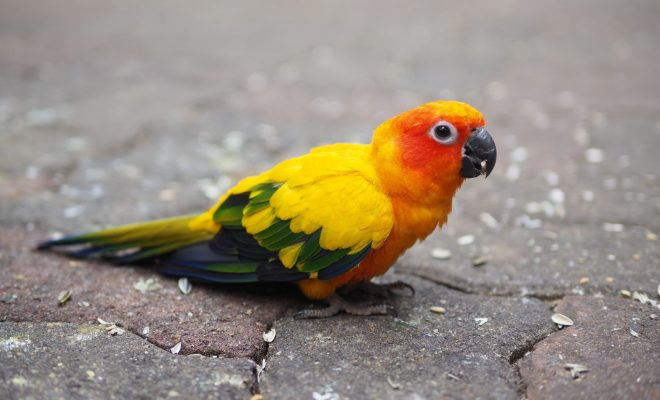How to Feed a Conure: 12 Steps

Conures are small, lively parrots native to Central and South America. They are known for their beautiful colors and playful personalities, making them popular pets among bird enthusiasts. Feeding a conure properly is essential for their health, happiness, and longevity. Here are 12 steps to properly feed your conure.
1. Research your conure species: Conures belong to several species, each with slightly different dietary needs. Determine the exact species of your conure and familiarize yourself with its specific nutritional requirements.
2. Provide a high-quality commercial pellet: Choose a high-quality, nutritionally balanced pellet formulated for conures as the foundation of their diet. This should make up about 60-70% of your conure’s total food intake.
3. Offer fresh fruits and vegetables: Fresh produce should account for about 20-30% of your conure’s diet. Offer a variety daily, including leafy greens, carrots, peas, corn, apples, pears, bananas, and berries.
4. Include healthy seeds and nuts: While seeds and nuts are commonly associated with birds’ diets, they should be considered treats rather than staples. Give conures these treats in moderation – no more than 10% of their diet.
5. Hygiene matters: Remember to wash all fruits and vegetables before feeding them to your conure to remove any chemicals or pesticides on the surface.
6. Control portion sizes: Monitor the amount of food you provide to prevent overfeeding or underfeeding your conure.
7. Introduce new foods slowly: When introducing new foods to your bird’s diet, start by offering them alongside their regular food in small amounts. Gradually increase the quantity as they become accustomed to the new item.
8. Remove uneaten food promptly: To prevent bacterial growth and spoilage, discard any uneaten fresh food after a few hours.
9. Provide clean, fresh water: Proper hydration is critical for a healthy conure—always make sure there is fresh, clean water available. Change the water daily and clean the bowl frequently to prevent bacteria buildup.
10. Monitor your conure’s weight: Regularly weigh your bird using a small kitchen or bird scale to ensure they maintain a healthy weight.
11. Watch for signs of malnutrition: If you notice your conure’s feathers looking dull, their eyes appearing sunken or swollen, or any changes in their droppings, consult your avian veterinarian for advice.
12. Consult with an avian veterinarian: If you have any questions or concerns about your conure’s diet or health, seek professional guidance from an avian veterinarian.
In conclusion, feeding your conure is not complicated but requires attention to detail and knowledge of their dietary needs. By providing a balanced diet consisting of high-quality pellets, fresh produce, and the occasional nut or seed treat, you can ensure the health and happiness of your feathered friend for years to come.






